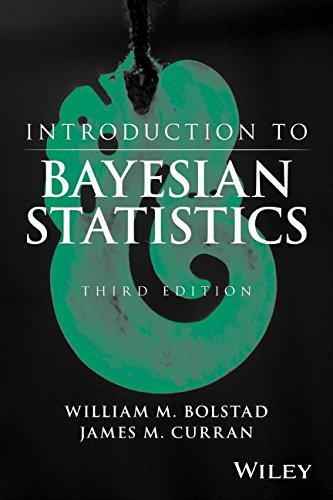

Most ebook files are in PDF format, so you can easily read them using various software such as Foxit Reader or directly on the Google Chrome browser.
Some ebook files are released by publishers in other formats such as .awz, .mobi, .epub, .fb2, etc. You may need to install specific software to read these formats on mobile/PC, such as Calibre.
Please read the tutorial at this link: https://ebookbell.com/faq
We offer FREE conversion to the popular formats you request; however, this may take some time. Therefore, right after payment, please email us, and we will try to provide the service as quickly as possible.
For some exceptional file formats or broken links (if any), please refrain from opening any disputes. Instead, email us first, and we will try to assist within a maximum of 6 hours.
EbookBell Team

4.3
38 reviews"...this edition is useful and effective in teaching Bayesian inference at both elementary and intermediate levels. It is a well-written book on elementary Bayesian inference, and the material is easily accessible. It is both concise and timely, and provides a good collection of overviews and reviews of important tools used in Bayesian statistical methods."
There is a strong upsurge in the use of Bayesian methods in applied statistical analysis, yet most introductory statistics texts only present frequentist methods. Bayesian statistics has many important advantages that students should learn about if they are going into fields where statistics will be used. In this third Edition, four newly-added chapters address topics that reflect the rapid advances in the field of Bayesian statistics. The authors continue to provide a Bayesian treatment of introductory statistical topics, such as scientific data gathering, discrete random variables, robust Bayesian methods, and Bayesian approaches to inference for discrete random variables, binomial proportions, Poisson, and normal means, and simple linear regression. In addition, more advanced topics in the field are presented in four new chapters: Bayesian inference for a normal with unknown mean and variance; Bayesian inference for a Multivariate Normal mean vector; Bayesian inference for the Multiple Linear Regression Model; and Computational Bayesian Statistics including Markov Chain Monte Carlo. The inclusion of these topics will facilitate readers' ability to advance from a minimal understanding of Statistics to the ability to tackle topics in more applied, advanced level books. Minitab macros and R functions are available on the book's related website to assist with chapter exercises. Introduction to Bayesian Statistics, Third Edition also features:
Introduction to Bayesian Statistics, Third Edition is a textbook for upper-undergraduate or first-year graduate level courses on introductory statistics course with a Bayesian emphasis. It can also be used as a reference work for statisticians who require a working knowledge of Bayesian statistics.